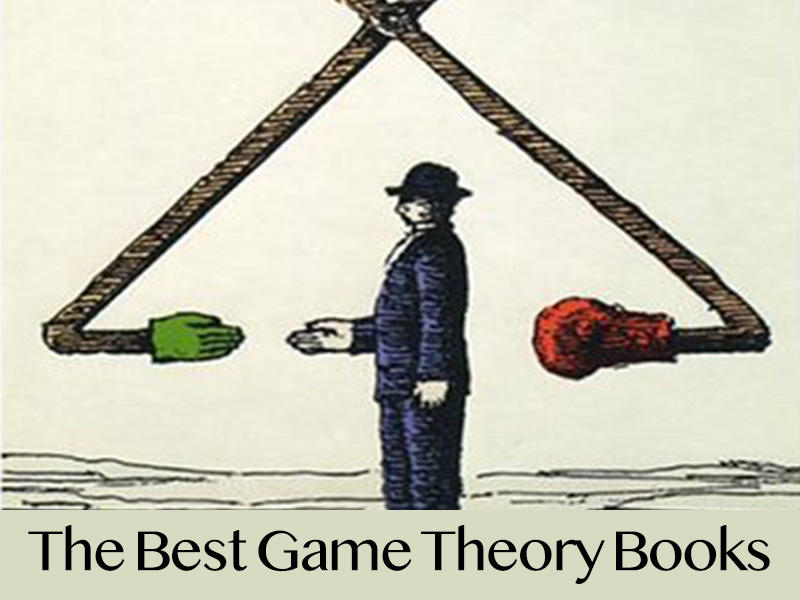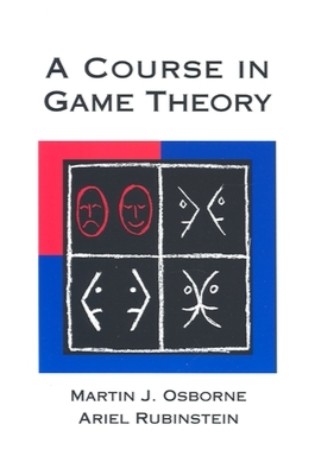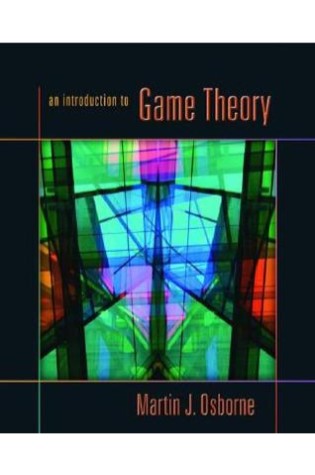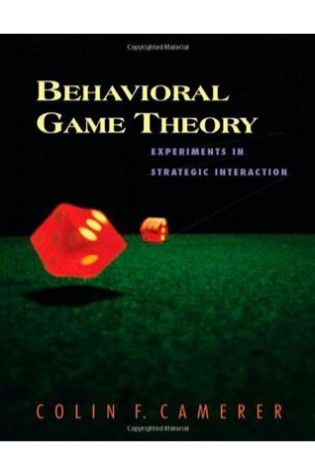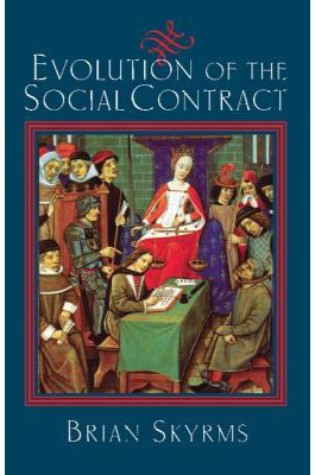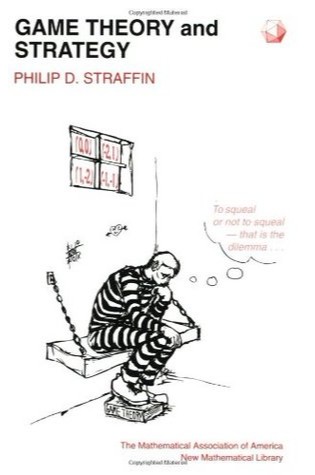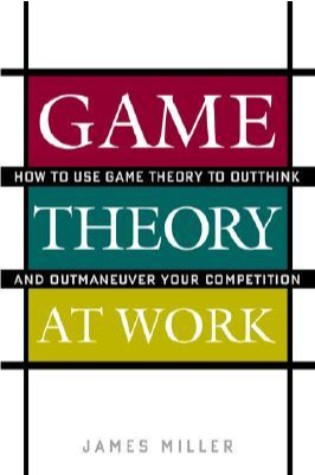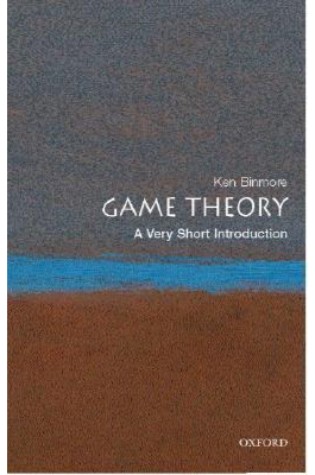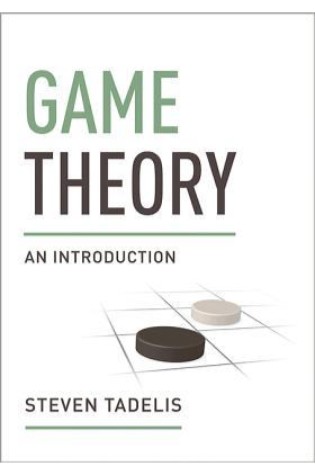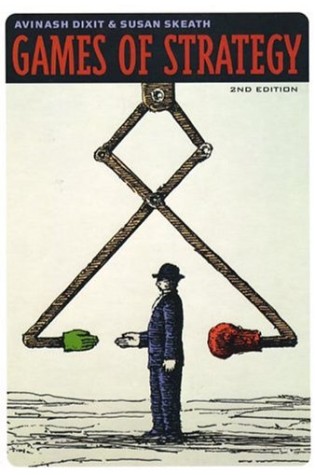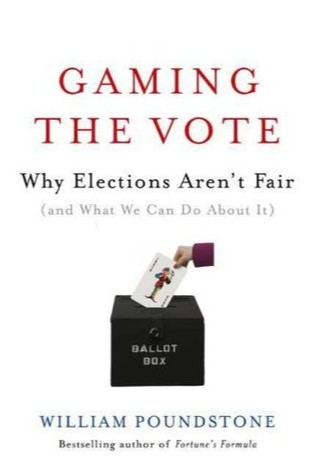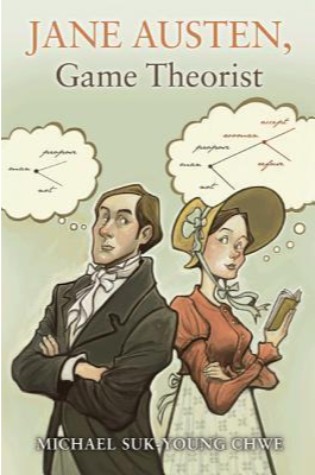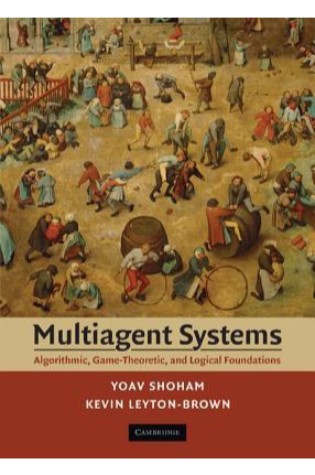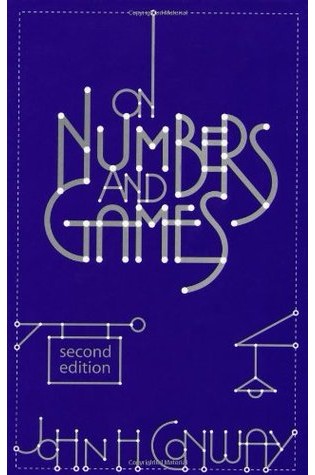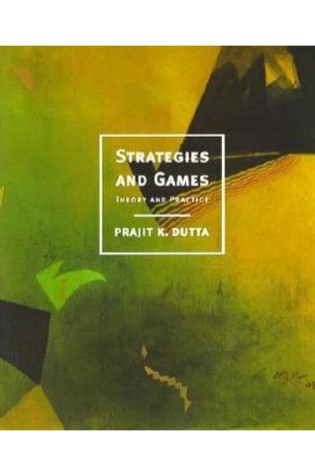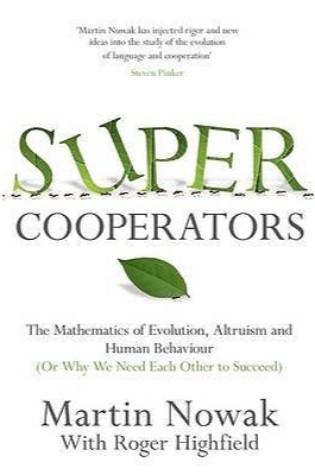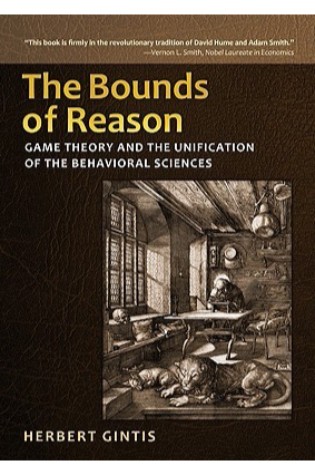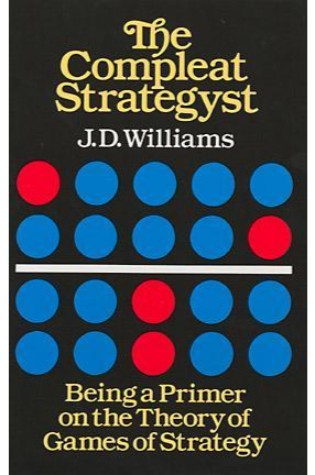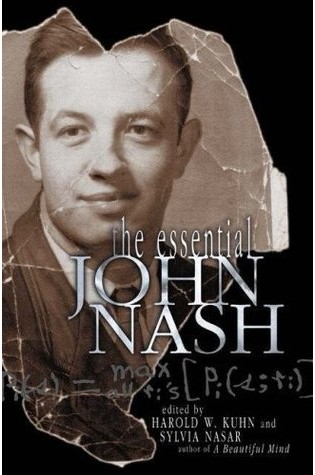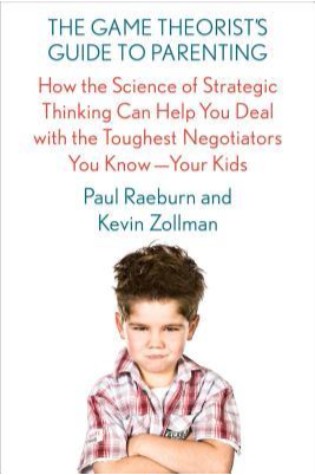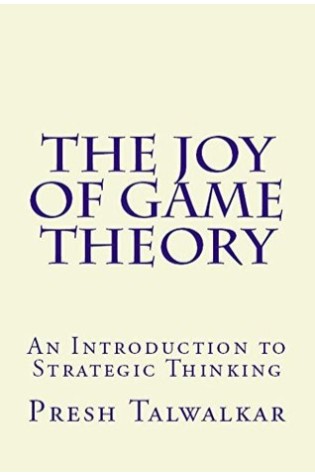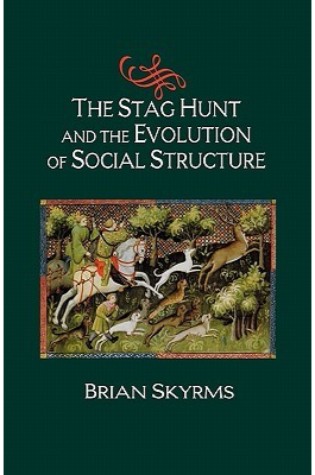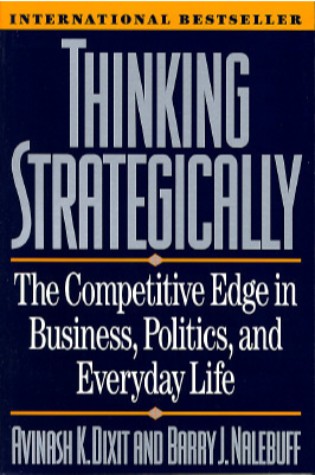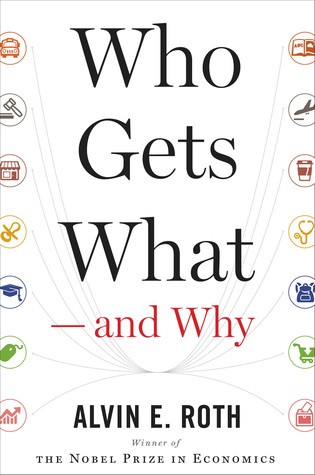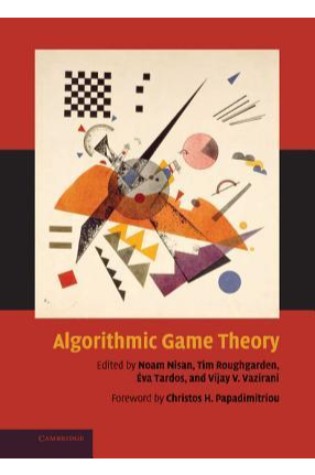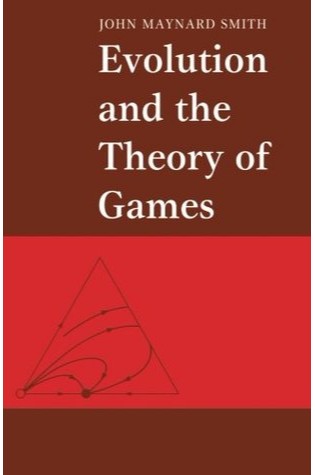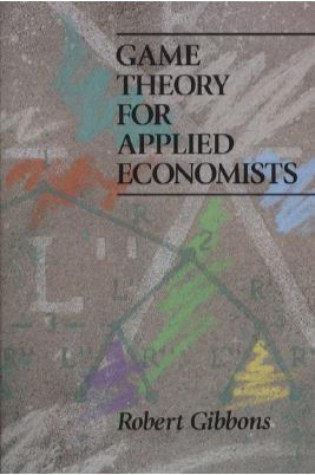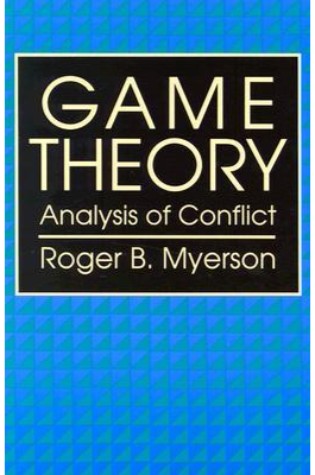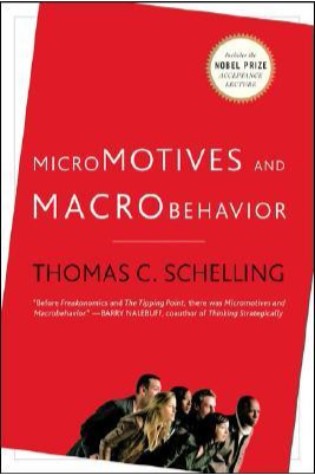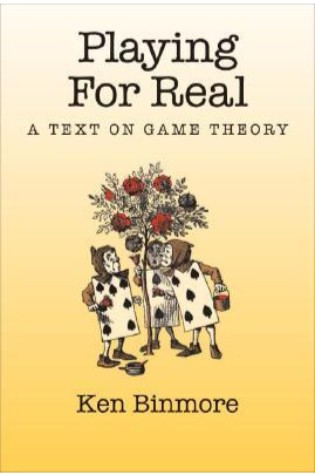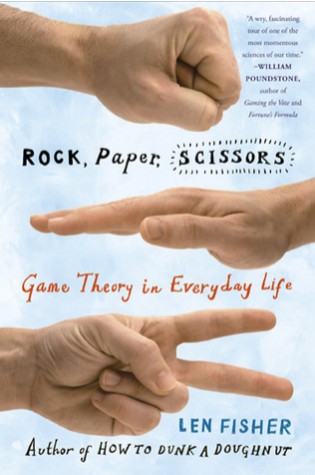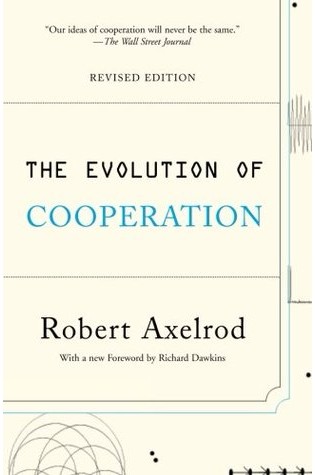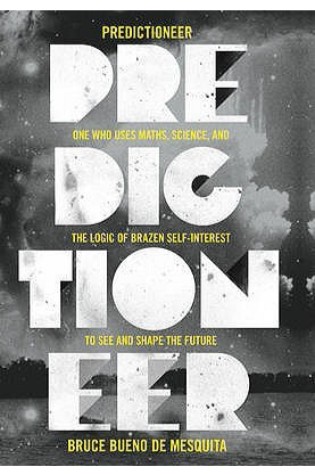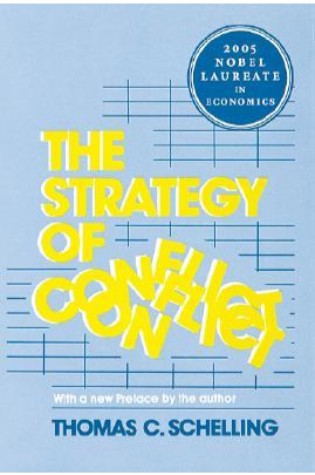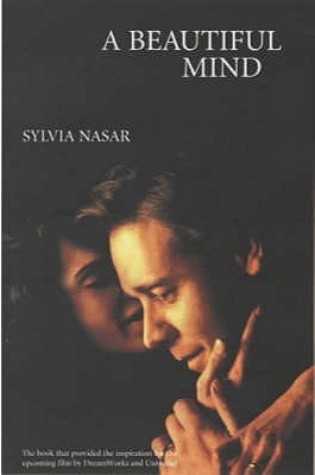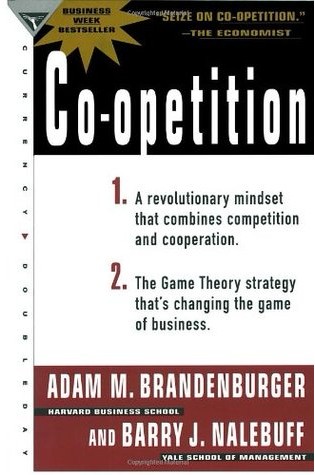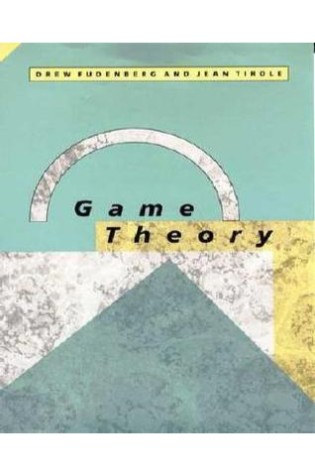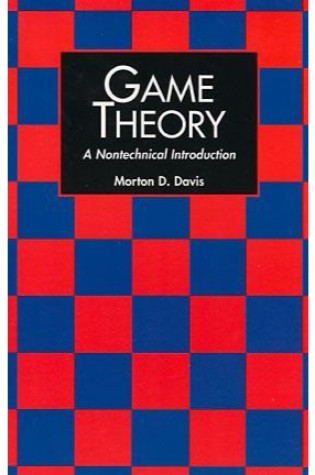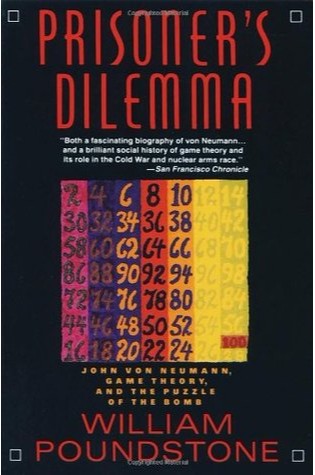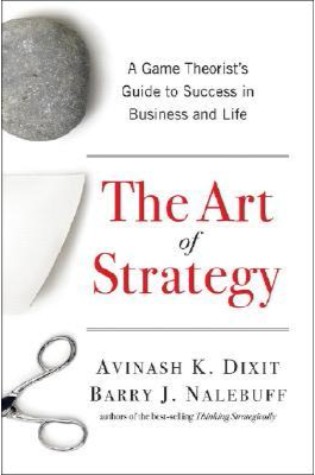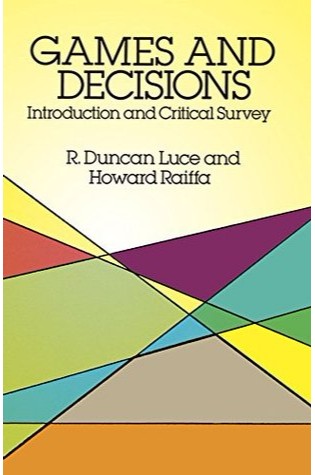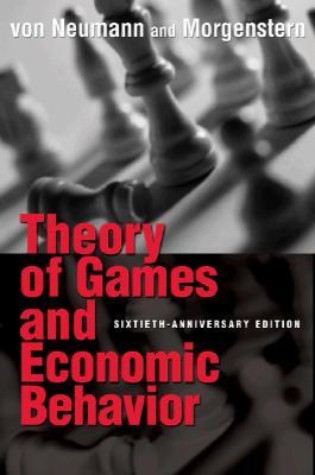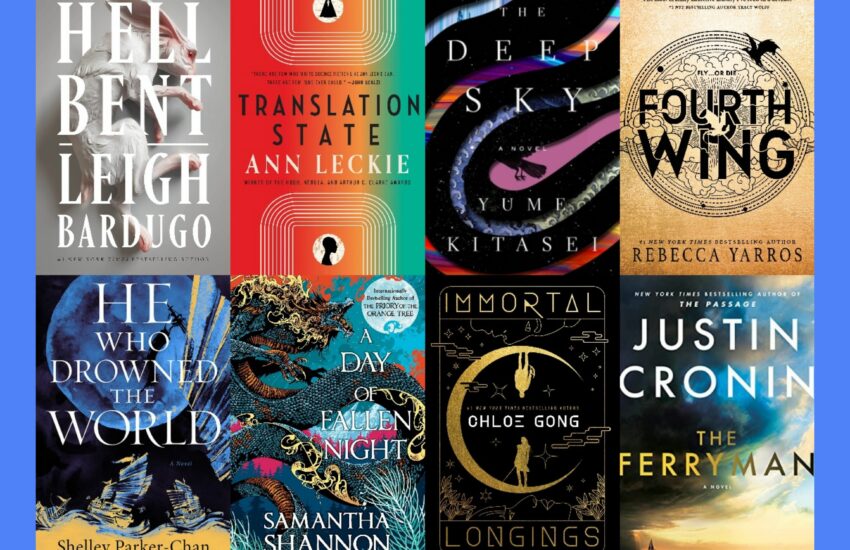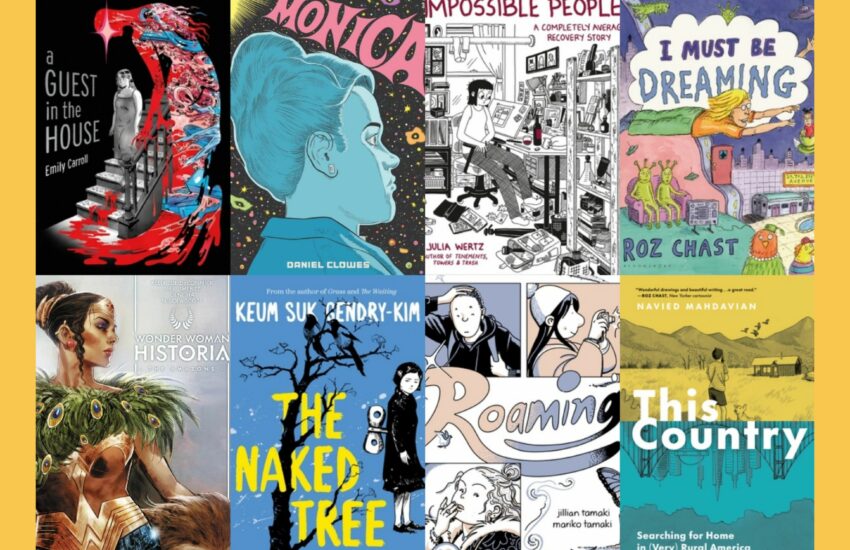The Best Books About Game Theory
“What are the best books about Game Theory?” We looked at 127 of the top books, aggregating and ranking them so we could answer that very question!
The top 41 titles, all appearing on 2 or more “Best Game Theory” book lists, are ranked below by how many lists they appear on. The remaining 75+ titles, as well as the lists we used are in alphabetical order at the bottom of the page.
Happy Scrolling!
Top 41 Game Theory Books
41 .) A course in Game Theory by Martin J. Osborne
Lists It Appears On:
- Wikipedia
- Goodreads
A Course in Game Theory presents the main ideas of game theory at a level suitable for graduate students and advanced undergraduates, emphasizing the theory’s foundations and interpretations of its basic concepts. The authors provide precise definitions and full proofs of results, sacrificing generalities and limiting the scope of the material in order to do so. The text is organized in four parts: strategic games, extensive games with perfect information, extensive games with imperfect information, and coalitional games.
40 .) An Introduction to Game Theory by Martin J. Osborne
Lists It Appears On:
- Wikipedia
- Goodreads
Game-theoretic reasoning pervades economic theory and is used widely in other social and behavioral sciences. An Introduction to Game Theory, by Martin J. Osborne, presents the main principles of game theory and shows how they can be used to understand economic, social, political, and biological phenomena. The book introduces in an accessible manner the main ideas behind the theory rather than their mathematical expression. All concepts are defined precisely, and logical reasoning is used throughout. The book requires an understanding of basic mathematics but assumes no specific knowledge of economics, political science, or other social or behavioral sciences.
39 .) Behavioral Game Theory: Experiments in Strategic Interaction by Colin F. Camerer
Lists It Appears On:
- Wikipedia
- Goodreads
“Game theory, the formalized study of strategy, began in the 1940s by asking how emotionless geniuses should play games, but ignored until recently how average people with emotions and limited foresight actually play games. This book marks the first substantial and authoritative effort to close this gap. Colin Camerer, one of the field’s leading figures, uses psychological principles and hundreds of experiments to develop mathematical theories of reciprocity, limited strategizing, and learning, which help predict what real people and companies do in strategic situations. Unifying a wealth of information from ongoing studies in strategic behavior, he takes the experimental science of behavioral economics a major step forward. He does so in lucid, friendly prose.
Behavioral game theory has three ingredients that come clearly into focus in this book: mathematical theories of how moral obligation and vengeance affect the way people bargain and trust each other; a theory of how limits in the brain constrain the number of steps of “”I think he thinks . . .”” reasoning people naturally do; and a theory of how people learn from experience to make better strategic decisions. Strategic interactions that can be explained by behavioral game theory include bargaining, games of bluffing as in sports and poker, strikes, how conventions help coordinate a joint activity, price competition and patent races, and building up reputations for trustworthiness or ruthlessness in business or life.”
38 .) Evolution of the Social Contract by Brian Skyrms
Lists It Appears On:
- Wikipedia
- Goodreads
In this new edition of Evolution of the Social Contract, Brian Skyrms uses evolutionary game theory to analyze the genesis of social contracts and investigates social phenomena including justice, communication, altruism, and bargaining. Featuring new material on evolution and information transfer, and including recent developments in game theory and evolution literature, his book introduces and applies appropriate concepts of equilibrium and evolutionary dynamics, showing how key issues can be modeled as games and considering the ways in which evolution sometimes supports, and sometimes does not support, rational choice. He discusses topics including how bargaining with neighbors promotes sharing of resources, the diversity of behavior in ultimatum bargaining in small societies, the Prisoner’s Dilemma, and an investigation into signaling games and the spontaneous emergence of meaningful communication. His book will be of great interest to readers in philosophy of science, social science, evolutionary biology, game and decision theory, and political theory.
37 .) Game Theory and Strategy by Philip D. Straffin
Lists It Appears On:
- Art Of Problem Solving
- Mind Your Decisions
This book is an introduction to mathematical game theory, which might better be called the mathematical theory of conflict and cooperation. It is applicable whenever two individuals–or companies, or political parties, or nations–confront situations where the outcome for each depends on the behavior of all. What are the best strategies in such situations? If there are chances of cooperation, with whom should you cooperate, and how should you share the proceeds of cooperation? Since its creation by John von Neumann and Oskar Morgenstern in 1944, game theory has shed new light on business, politics, economics, social psychology, philosophy, and evolutionary biology. In this book, its fundamental ideas are developed with mathematics at the level of high school algebra and applied to many of these fields (see the table of contents). Ideas like “fairness” are presented via axioms that fair allocations should satisfy; thus the reader is introduced to axiomatic thinking as well as to mathematical modeling of actual situations.
36 .) Game Theory at Work: How to Use Game Theory to Outthink and Outmaneuver Your Competition by James D. Miller
Lists It Appears On:
- Mind Your Decisions
- Goodreads
Game theory has become entrenched in today’s business world. It has also often required oppressive and incomprehensible mathematics. Game Theory at Work steers around math and pedagogy to make this innovative tool accessible to a larger audience and allow all levels of business to use it to both improve decision-making skills and eliminate potentially lethal uncertainty.
35 .) Game Theory: A Very Short Introduction by Ken Binmore
Lists It Appears On:
- Mind Your Decisions
- Goodreads
“Games are everywhere: Drivers manoeuvring in heavy traffic are playing a driving game. Bargain hunters bidding on eBay are playing an auctioning game. A firm negotiating next year’s wage is playing a bargaining game. The opposing candidates in an election are playing a political game. The supermarket’s price for corn flakes is decided by playing an economic game.
Game theory is about how to play such games in a rational way. Even when the players have not thought everything out in advance, game theory often works for the same reason that mindless animals sometimes end up behaving very cleverly: evolutionary forces eliminate irrational play because it is unfit.
Game theory has seen spectacular successes in evolutionary biology and economics, and is beginning to revolutionize other disciplines from psychology to political science. This Very Short Introduction introduces the fascinating world of game theory, showing how it can be understood without mathematical equations, and revealing that everything from how to play poker optimally to the sex ratio among bees can be understood by anyone willing to think seriously about the problem.”
34 .) Game Theory: An Introduction by Steve Tadelis
Lists It Appears On:
- Mind Your Decisions
- Goodreads
This comprehensive textbook introduces readers to the principal ideas and applications of game theory, in a style that combines rigor with accessibility. Steven Tadelis begins with a concise description of rational decision making, and goes on to discuss strategic and extensive form games with complete information, Bayesian games, and extensive form games with imperfect information. He covers a host of topics, including multistage and repeated games, bargaining theory, auctions, rent-seeking games, mechanism design, signaling games, reputation building, and information transmission games. Unlike other books on game theory, this one begins with the idea of rationality and explores its implications for multiperson decision problems through concepts like dominated strategies and rationalizability. Only then does it present the subject of Nash equilibrium and its derivatives.
33 .) Games of Strategy by Avinash K. Dixit
Lists It Appears On:
- GitHubGist
- Goodreads
Games of Strategy, famous for its simple yet accurate exposition and its great examples and exercises, has been extensively revised for this Fourth Edition. The key to its broad success is that the authors assume no prior knowledge of game theory and present the material in the most accessible way possible. With new and improved features and compelling end-of-chapter exercises, this Fourth Edition of Games of Strategy continues to engage students around the world.
32 .) Gaming the Vote: Why Elections Aren’t Fair by William Poundstone
Lists It Appears On:
- Goodreads
- Mind Your Decisions
“At least five U.S. presidential elections have been won by the second most popular candidate, but these results were not inevitable. In fact, such an unfair outcome need never happen again, and as William Poundstone shows in Gaming the Vote, the solution is lurking right under our noses.
In all five cases, the vote was upset by a “”spoiler””―a minor candidate who took enough votes away from the most popular candidate to tip the election to someone else. The spoiler effect is more than a glitch. It is a consequence of one of the most surprising intellectual discoveries of the twentieth century: the “”impossibility theorem”” of the Nobel laureate economist Kenneth Arrow. His theorem asserts that voting is fundamentally unfair―a finding that has not been lost on today’s political consultants. Armed with polls, focus groups, and smear campaigns, political strategists are exploiting the mathematical faults of the simple majority vote. The answer to the spoiler problem lies in a system called range voting, which would satisfy both right and left, and Gaming the Vote assesses the obstacles confronting any attempt to change the U.S. electoral system.
The latest of several books by Poundstone on the theme of how important scientific ideas have affected the real world, Gaming the Vote is both a wry exposé of how the political system really works and a call to action.”
31 .) Jane Austen, Game Theorist by Michael Suk-Young Chwe
Lists It Appears On:
- Goodreads
- Mind Your Decisions
Game theory―the study of how people make choices while interacting with others―is one of the most popular technical approaches in social science today. But as Michael Chwe reveals in his insightful new book, Jane Austen explored game theory’s core ideas in her six novels roughly two hundred years ago―over a century before its mathematical development during the Cold War. Jane Austen, Game Theorist shows how this beloved writer theorized choice and preferences, prized strategic thinking, and analyzed why superiors are often strategically clueless about inferiors. Exploring a diverse range of literature and folktales, this book illustrates the wide relevance of game theory and how, fundamentally, we are all strategic thinkers.
30 .) Multiagent Systems: Algorithmic, Game-Theoretic, and Logical Foundations by Yoav Shoham
Lists It Appears On:
- Wikipedia
- Goodreads
This exciting and pioneering new overview of multiagent systems, which are online systems composed of multiple interacting intelligent agents, i.e., online trading, offers a newly seen computer science perspective on multiagent systems, while integrating ideas from operations research, game theory, economics, logic, and even philosophy and linguistics. The authors emphasize foundations to create a broad and rigorous treatment of their subject, with thorough presentations of distributed problem solving, game theory, multiagent communication and learning, social choice, mechanism design, auctions, cooperative game theory, and modal logics of knowledge and belief. For each topic, basic concepts are introduced, examples are given, proofs of key results are offered, and algorithmic considerations are examined. An appendix covers background material in probability theory, classical logic, Markov decision processes and mathematical programming.
29 .) On Numbers and Games by John Conway
Lists It Appears On:
- Art Of Problem Solving
- Mind Your Decisions
ONAG, as the book is commonly known, is one of those rare publications that sprang to life in a moment of creative energy and has remained influential for over a quarter of a century. Originally written to define the relation between the theories of transfinite numbers and mathematical games, the resulting work is a mathematically sophisticated but eminently enjoyable guide to game theory. By defining numbers as the strengths of positions in certain games, the author arrives at a new class, the surreal numbers, that includes both real numbers and ordinal numbers. These surreal numbers are applied in the author’s mathematical analysis of game strategies.
28 .) Strategies and Games: Theory and Practice by Prajit K. Dutta
Lists It Appears On:
- Game Theory Strategies
- Wikipedia
Game theory has become increasingly popular among undergraduate as well as business school students. This text is the first to provide both a complete theoretical treatment of the subject and a variety of real-world applications, primarily in economics, but also in business, political science, and the law. Strategies and Games grew out of Prajit Dutta’s experience teaching a course in game theory over the last six years at Columbia University.The book is divided into three parts: Strategic Form Games and Their Applications, Extensive Form Games and Their Applications, and Asymmetric Information Games and Their Applications.
27 .) SuperCooperators: Altruism, Evolution, and Why We Need Each Other to Succeed by Martin Nowak and Roger Highfield
Lists It Appears On:
- GitHubGist
- Mind Your Decisions
Martin Nowak, one of the world’s experts on evolution and game theory, working here with bestselling science writer Roger Highfield, turns an important aspect of evolutionary theory on its head to explain why cooperation, not competition, has always been the key to the evolution of complexity. In his first book written for a wide audience, this hugely influential scientist explains his cutting-edge research into the mysteries of cooperation, from the rise of multicellular life to Good Samaritans, and from cancer treatment to the success of large companies. With wit and clarity, and an eye to its huge implications, Nowak and Highfield make the case that cooperation, not competition, is the defining human trait. SuperCooperators will expand our understanding of evolution and provoke debate for years to come.
26 .) The Bounds of Reason: Game Theory and the Unification of the Behavioral Sciences by Herbert Gintis
Lists It Appears On:
- Game Theory Strategies
- Goodreads
Game theory is central to understanding human behavior and relevant to all of the behavioral sciences―from biology and economics, to anthropology and political science. However, as The Bounds of Reason demonstrates, game theory alone cannot fully explain human behavior and should instead complement other key concepts championed by the behavioral disciplines. Herbert Gintis shows that just as game theory without broader social theory is merely technical bravado, so social theory without game theory is a handicapped enterprise.
25 .) The Compleat Strategyst: Being a Primer on the Theory of Games of Strategy by J.D. Williams
Lists It Appears On:
- Mind Your Decisions
- Goodreads
When J. D. Williams wrote this entertaining, witty introduction for the nonscientist, game theory was still a somewhat mysterious subject familiar to very few scientists beyond those researchers, like himself, working for the military. Now, over thirty years after its original publication as a Rand Corporation research study, his light-hearted though thoroughly effective primer is the recognized classic introduction to an increasingly applicable discipline. Used by amateurs, professionals, and students throughout the world in the classroom, on the job, and for personal amusement
24 .) The Essential John Nash by John F. Nash
Lists It Appears On:
- Mind Your Decisions
- Goodreads
“When John Nash won the Nobel prize in economics in 1994, many people were surprised to learn that he was alive and well. Since then, Sylvia Nasar’s celebrated biography A Beautiful Mind, the basis of a new major motion picture, has revealed the man. The Essential John Nash reveals his work–in his own words. This book presents, for the first time, the full range of Nash’s diverse contributions not only to game theory, for which he received the Nobel, but to pure mathematics–from Riemannian geometry and partial differential equations–in which he commands even greater acclaim among academics. Included are nine of Nash’s most influential papers, most of them written over the decade beginning in 1949.
From 1959 until his astonishing remission three decades later, the man behind the concepts “”Nash equilibrium”” and “”Nash bargaining””–concepts that today pervade not only economics but nuclear strategy and contract talks in major league sports–had lived in the shadow of a condition diagnosed as paranoid schizophrenia. In the introduction to this book, Nasar recounts how Nash had, by the age of thirty, gone from being a wunderkind at Princeton and a rising mathematical star at MIT to the depths of mental illness.”
23 .) The Game Theorist’s Guide To Parenting by Paul Raeburn and Kevin Zollman
Lists It Appears On:
- Goodreads
- Mind Your Decisions
As every parent knows, kids are surprisingly clever negotiators. But how can we avoid those all-too-familiar wails of “That’s not fair!” and “You can’t make me!”? In The Game Theorist’s Guide to Parenting, the award-winning journalist and father of five Paul Raeburn and the game theorist Kevin Zollman pair up to highlight tactics from the worlds of economics and business that can help parents break the endless cycle of quarrels and ineffective solutions. Raeburn and Zollman show that some of the same strategies successfully applied to big business deals and politics―such as the Prisoner’s Dilemma and the Ultimatum Game―can be used to solve such titanic, age-old parenting problems as dividing up toys, keeping the peace on long car rides, and sticking to homework routines.
22 .) The Joy of Game Theory: An Introduction to Strategic Thinking by Presh Talwalkar
Lists It Appears On:
- Mind Your Decisions
- Goodreads
You’ll learn how to negotiate better by making your threats credible, sometimes limiting options or burning bridges, and thinking about new ways to create better outcomes. As these goals indicate, game theory is about more than board games and gambling. It all seems so simple, and yet that definition belies the complexity of game theory. While it may only take seconds to get a sense of game theory, it takes a lifetime to appreciate and master it. This book will get you started.
21 .) The Stag Hunt and the Evolution of Social Structure by Brian Skyrms
Lists It Appears On:
- Wikipedia
- Goodreads
Brian Skyrms’ study of ideas of cooperation and collective action explores the implications of a prototypical story found in Rousseau’s A Discourse on Inequality. It is therein that Rousseau contrasts the pay-off of hunting hare (where the risk of non-cooperation is small and the reward equally small) against the pay-off of hunting the stag (where maximum cooperation is required but the reward is much greater.) Thus, rational agents are pulled in one direction by considerations of risk and in another by considerations of mutual benefit.
20 .) Thinking Strategically by Avinash Dixit and Barry Nalebuff
Lists It Appears On:
- Mind Your Decisions
- Goodreads
Uses game theory to create a set of basic strategic principles for sports, politics, business, and personal life
19 .) Who Gets What and Why: The New Economics of Matchmaking and Market Design by Alvin E. Roth
Lists It Appears On:
- Mind Your Decisions
- Goodreads
Most of the study of economics deals with commodity markets, where the price of a good connects sellers and buyers. But what about other kinds of “goods,” like a spot in the Yale freshman class or a position at Google? If you’ve ever sought a job or hired someone, applied to college or guided your child into a good kindergarten, asked someone out on a date or been asked out, you’ve participated in a kind of market. This is the territory of matching markets, where “sellers” and “buyers” must choose each other, and price isn’t the only factor determining who gets what.
18 .) Algorithmic Game Theory by Noam Nisan
Lists It Appears On:
- Game Theory Strategies
- Goodreads
- Wikipedia
In the last few years game theory has had a substantial impact on computer science, especially on Internet- and e-commerce-related issues. More than 40 of the top researchers in this field have written chapters that go from the foundations to the state of the art. Basic chapters on algorithmic methods for equilibria, mechanism design and combinatorial auctions are followed by chapters on incentives and pricing, cost sharing, information markets and cryptography and security. Students, researchers and practitioners alike need to learn more about these fascinating theoretical developments and their widespread practical application.
17 .) Evolution and the Theory of Games by John Maynard Smith
Lists It Appears On:
- Wikipedia
- GitHubGist
- Goodreads
In this 1982 book, the theory of games, first developed to analyse economic behaviour, is modified so that it can be applied to evolving populations. John Maynard Smith’s concept of an evolutionarily stable strategy is relevant whenever the best thing for an animal or plant to do depends on what others are doing. The theory leads to testable predictions about the evolution of behaviour, of sex and genetic systems, and of growth and life history patterns. This book contains a full account of the theory, and of the data relevant to it. The account is aimed at senior undergraduate and graduate students, teachers and research workers in animal behaviour, population genetics and evolutionary biology. The book will also be of interest to mathematicians and game theorists; the mathematics has been largely confined to appendixes so that the main text may be easily followed by biologists.
16 .) Game Theory for Applied Economists by Robert Gibbons
Lists It Appears On:
- Art Of Problem Solving
- Wikipedia
- Goodreads
This book introduces one of the most powerful tools of modern economics to a wide audience: those who will later construct or consume game-theoretic models. Robert Gibbons addresses scholars in applied fields within economics who want a serious and thorough discussion of game theory but who may have found other works overly abstract. Gibbons emphasizes the economic applications of the theory at least as much as the pure theory itself; formal arguments about abstract games play a minor role. The applications illustrate the process of model building–of translating an informal description of a multi-person decision situation into a formal game-theoretic problem to be analyzed. Also, the variety of applications shows that similar issues arise in different areas of economics, and that the same game-theoretic tools can be applied in each setting. In order to emphasize the broad potential scope of the theory, conventional applications from industrial organization have been largely replaced by applications from labor, macro, and other applied fields in economics. The book covers four classes of games, and four corresponding notions of equilibrium: static games of complete information and Nash equilibrium, dynamic games of complete information and subgame-perfect Nash equilibrium, static games of incomplete information and Bayesian Nash equilibrium, and dynamic games of incomplete information and perfect Bayesian equilibrium.
15 .) Game Theory: Analysis of Conflict by Roger B. Myerson
Lists It Appears On:
- Art Of Problem Solving
- Mind Your Decisions
- Goodreads
Eminently suited to classroom use as well as individual study, Roger Myerson’s introductory text provides a clear and thorough examination of the models, solution concepts, results, and methodological principles of noncooperative and cooperative game theory. Myerson introduces, clarifies, and synthesizes the extraordinary advances made in the subject over the past fifteen years, presents an overview of decision theory, and comprehensively reviews the development of the fundamental models: games in extensive form and strategic form, and Bayesian games with incomplete information.
14 .) Micromotives and Macrobehavior by Thomas C. Schelling
Lists It Appears On:
- GitHubGist
- Mind Your Decisions
- Goodreads
Micromotives and Macrobehavior was originally published over twenty-five years ago, yet the stories it tells feel just as fresh today. And the subject of these stories―how small and seemingly meaningless decisions and actions by individuals often lead to significant unintended consequences for a large group―is more important than ever. In one famous example, Thomas C. Schelling shows that a slight-but-not-malicious preference to have neighbors of the same race eventually leads to completely segregated populations.
13 .) Playing for Real: A Text on Game Theory by Ken Binmore
Lists It Appears On:
- Game Theory Strategies
- Mind Your Decisions
- Goodreads
Ken Binmore’s previous game theory textbook, Fun and Games (D.C. Heath, 1991), carved out a significant niche in the advanced undergraduate market; it was intellectually serious and more up-to-date than its competitors, but also accessibly written. Its central thesis was that game theory allows us to understand many kinds of interactions between people, a point that Binmore amply demonstrated through a rich range of examples and applications. This replacement for the now out-of-date 1991 textbook retains the entertaining examples, but changes the organization to match how game theory courses are actually taught, making Playing for Real a more versatile text that almost all possible course designs will find easier to use, with less jumping about than before. In addition, the problem sections, already used as a reference by many teachers, have become even more clever and varied, without becoming too technical. Playing for Real will sell into advanced undergraduate courses in game theory, primarily those in economics, but also courses in the social sciences, and serve as a reference for economists.
12 .) Rock, Paper, Scissors: Game Theory in Everyday Life by Len Fisher
Lists It Appears On:
- Mind Your Decisions
- Goodreads
- GitHubGist
Fisher shows how the modern science of game theory has helped biologists to understand the evolution of cooperation in nature, and investigates how we might apply those lessons to our own society. In a series of experiments that take him from the polite confines of an English dinner party to crowded supermarkets, congested Indian roads, and the wilds of outback Australia, not to mention baseball strategies and the intricacies of quantum mechanics, Fisher sheds light on the problem of global cooperation. The outcomes are sometimes hilarious, sometimes alarming, but always revealing. A witty romp through a serious science, Rock, Paper, Scissors will both teach and delight anyone interested in what it what it takes to get people to work together.
11 .) The Evolution of Cooperation by Robert Axelrod
Lists It Appears On:
- Art Of Problem Solving
- GitHubGist
- Goodreads
The Evolution of Cooperation provides valuable insights into the age-old question of whether unforced cooperation is ever possible. Widely praised and much-discussed, this classic book explores how cooperation can emerge in a world of self-seeking egoists-whether superpowers, businesses, or individuals-when there is no central authority to police their actions. The problem of cooperation is central to many different fields. Robert Axelrod recounts the famous computer tournaments in which the “cooperative” program Tit for Tat recorded its stunning victories, explains its application to a broad spectrum of subjects, and suggests how readers can both apply cooperative principles to their own lives and teach cooperative principles to others.
10 .) The Predictioneer’s Game: Using the Logic of Brazen Self-Interest to See and Shape the Future by Bruce Bueno De Mesquita
Lists It Appears On:
- Goodreads
- Game Theory Strategies
- Mind Your Decisions
Bruce Bueno de Mesquita is a master of game theory, which is a fancy label for a simple idea: People compete, and they always do what they think is in their own best interest. Bueno de Mesquita uses game theory and its insights into human behavior to predict and even engineer political, financial, and personal events. His forecasts, which have been employed by everyone from the CIA to major business firms, have an amazing 90 percent accuracy rate, and in this dazzling and revelatory book he shares his startling methods and lets you play along in a range of high-stakes negotiations and conflicts.
9 .) The Strategy of Conflict by Thomas C. Schelling
Lists It Appears On:
- GitHubGist
- Mind Your Decisions
- Goodreads
A series of closely interrelated essays on game theory, this book deals with an area in which progress has been least satisfactory—the situations where there is a common interest as well as conflict between adversaries: negotiations, war and threats of war, criminal deterrence, extortion, tacit bargaining. It proposes enlightening similarities between, for instance, maneuvering in limited war and in a traffic jam; deterring the Russians and one’s own children; the modern strategy of terror and the ancient institution of hostages.
8 .) A Beautiful Mind by Sylvia Nasar
Lists It Appears On:
- Wikipedia
- Five Books
- Goodreads
- Mind Your Decisions
In this powerful and dramatic biography Sylvia Nasar vividly recreates the life of a mathematical genius whose career was cut short by schizophrenia and who, after three decades of devastating mental illness, miraculously recovered and was honored with a Nobel Prize.
7 .) Co-Opetition by Barry J. Nalebuff and Adam M. Brandenburger
Lists It Appears On:
- GitHubGist
- Mind Your Decisions
- Goodreads
- Game Theory Strategies
Intel, Nintendo, American Express, NutraSweet, American Airlines, and dozens of other companies have been using the strategies of co-opetition to change the game of business to their benefit. Formulating strategies based on game theory, authors Brandenburger and Nalebuff created a book that’s insightful and instructive for managers eager to move their companies into a new mind set.
6 .) Game Theory by Drew Fudenberg and Jean Tirole
Lists It Appears On:
- Game Theory Strategies
- Art Of Problem Solving
- Mind Your Decisions
- Goodreads
This advanced text introduces the principles of noncooperative game theory — including strategic form games, Nash equilibria, subgame perfection, repeated games, and games of incomplete information — in a direct and uncomplicated style that will acquaint students with the broad spectrum of the field while highlighting and explaining what they need to know at any given point. The analytic material is accompanied by many applications, examples, and exercises. The theory of noncooperative games studies the behavior of agents in any situation where each agent’s optimal choice may depend on a forecast of the opponents’ choices. “Noncooperative” refers to choices that are based on the participant’s perceived selfinterest. Although game theory has been applied to many fields, Fudenberg and Tirole focus on the kinds of game theory that have been most useful in the study of economic problems. They also include some applications to political science. The fourteen chapters are grouped in parts that cover static games of complete information, dynamic games of complete information, static games of incomplete information, dynamic games of incomplete information, and advanced topics.
5 .) Game Theory: A Non-technical Introduction by Morton D. Davis
Lists It Appears On:
- GitHubGist
- Mind Your Decisions
- Goodreads
- Wikipedia
4 .) Prisoner’s Dilemma by William Poundstone
Lists It Appears On:
- Art Of Problem Solving
- Goodreads
- GitHubGist
- Mind Your Decisions
Should you watch public television without pledging?…Exceed the posted speed limit?…Hop a subway turnstile without paying? These questions illustrate the so-called “prisoner’s dilemma”, a social puzzle that we all face every day. Though the answers may seem simple, their profound implications make the prisoner’s dilemma one of the great unifying concepts of science. Watching players bluff in a poker game inspired John von Neumann—father of the modern computer and one of the sharpest minds of the century—to construct game theory, a mathematical study of conflict and deception. Game theory was readily embraced at the RAND Corporation, the archetypical think tank charged with formulating military strategy for the atomic age, and in 1950 two RAND scientists made a momentous discovery.
3 .) The Art of Strategy: A Game Theorist’s Guide to Success in Business and Life by Avinash K. Dixit
Lists It Appears On:
- GitHubGist
- Mind Your Decisions
- Goodreads
- Game Theory Strategies
Game theory means rigorous strategic thinking. Itâs the art of anticipating your opponentâs next moves, knowing full well that your rival is trying to do the same thing to you. Though parts of game theory involve simple common sense, much is counterintuitive, and it can only be mastered by developing a new way of seeing the world. Using a diverse array of rich case studiesâfrom pop culture, TV, movies, sports, politics, and historyâthe authors show how nearly every business and personal interaction has a game-theory component to it. Mastering game theory will make you more successful in business and life, and this lively book is the key to that mastery.
2 .) Games and Decisions: Introduction and Critical Survey by R. Duncan Luce and Howard Raiffa
Lists It Appears On:
- Art Of Problem Solving
- Five Books
- Wikipedia
- Mind Your Decisions
- Goodreads
Superb non-technical introduction to game theory, primarily applied to social sciences. Clear, comprehensive coverage of utility theory, 2-person zero-sum games, 2-person non-zero-sum games, n-person games, individual and group decision-making, more.
1 .) Theory of Games and Economic Behavior by John von Neumann and Oskar Morgenstern
Lists It Appears On:
- Wikipedia
- Five Books
- Mind Your Decisions
- Goodreads
- Game Theory Strategies
This is the classic work upon which modern-day game theory is based. What began more than sixty years ago as a modest proposal that a mathematician and an economist write a short paper together blossomed, in 1944, when Princeton University Press published Theory of Games and Economic Behavior. In it, John von Neumann and Oskar Morgenstern conceived a groundbreaking mathematical theory of economic and social organization, based on a theory of games of strategy. Not only would this revolutionize economics, but the entirely new field of scientific inquiry it yielded–game theory–has since been widely used to analyze a host of real-world phenomena from arms races to optimal policy choices of presidential candidates, from vaccination policy to major league baseball salary negotiations. And it is today established throughout both the social sciences and a wide range of other sciences.
The 75+ Additional Books To Learn About Game Theory
| # | Books | Authors | Lists |
| (Titles Appear On 1 List Each) | |||
| 42 | A Primer in Game Theory | Wikipedia | |
| 43 | An Economic theory of Democracy | Wikipedia | |
| 44 | Animal signals | Wikipedia | |
| 45 | Arms and Influence | Thomas C. Schelling | Goodreads |
| 46 | Auction Theory | Vijay Krishna | Goodreads |
| 47 | Beautiful Math: John Nash, Game Theory, and the Modern Quest for a Code of Nature | Tom Siegfried | GitHubGist |
| 48 | Boyd: The Fighter Pilot Who Changed the Art of War | Robert Coram | Goodreads |
| 49 | Carnap and Logical Truth | Wikipedia | |
| 50 | Collected Papers | Robert J Aumann | Five Books |
| 51 | Complex Adaptive Systems: An Introduction to Computational Models of Social Life | John Miller and Scott Page | GitHubGist |
| 52 | Contributions to the Theory of Games | Wikipedia | |
| 53 | Contributions to the Theory of Games volume II | Wikipedia | |
| 54 | Convention: A Philosophical Study | Wikipedia | |
| 55 | Critical Mass | Philip Ball | Mind Your Decisions |
| 56 | Differential Games: A Mathematical Theory With Applications to Warfare and Pursuit, Control and Optimization | Wikipedia | |
| 57 | Equilibrium points in n-person games | Wikipedia | |
| 58 | Evolutionary Game Theory | Jörgen W. Weibull | Goodreads |
| 59 | Fifty Challenging Problems in Probability with Solutions | Frederick Mosteller | GitHubGist |
| 60 | Finite and Infinite Games: A Vision of Life as Play and Possibility | James P. Carse | Goodreads |
| 61 | Freakonomics | Mind Your Decisions | |
| 62 | Game Theory | Michael Maschler | Goodreads |
| 63 | Game Theory 101: Bargaining | William Spaniel | Mind Your Decisions |
| 64 | Game Theory 101: The Rationality of War | William Spaniel | Mind Your Decisions |
| 65 | Game Theory and Economic Modelling | David M. Kreps | Goodreads |
| 66 | Game Theory and the Social Contract, Volume 2: Just Playing | Ken Binmore | Goodreads |
| 67 | Game theory at work: how to use game theory to outthink and outmaneuver your competition | Wikipedia | |
| 68 | Game theory evolving: a problem-centered introduction to modeling strategic behavior | Wikipedia | |
| 69 | Game theory with economic applications | Wikipedia | |
| 70 | Game Theory: A Critical Introduction | Shaun P. Hargreaves-Heap | Goodreads |
| 71 | Game theory: decisions interaction and evolution | Wikipedia | |
| 72 | Game-Changer: Game Theory and the Art of Transforming Strategic Situations | David McAdams | Mind Your Decisions |
| 73 | Games and Information | Eric Rasmussen | Mind Your Decisions |
| 74 | Games of Strategy: Theory and Applications | Melvin Dresher | Mind Your Decisions |
| 75 | Getting to Yes: Negotiating Agreement Without Giving In | by Roger Fisher, William L | Mind Your Decisions |
| 76 | How Round Is Your Circle?: Where Engineering and Mathematics Meet | John Bryant and Chris Sangwin | GitHubGist |
| 77 | Impossible?: Surprising Solutions to Counterintuitive Conundrums | Julian Havil | GitHubGist |
| 78 | Insights into Game Theory: An Alternative Mathematical Experience | Ein-Ya Gura and Michael Maschler | Mind Your Decisions |
| 79 | Introducing Game Theory: A Graphic Guide | Ivan Pastine | Mind Your Decisions |
| 80 | It’s Not You, It’s the Dishes (originally published as Spousonomics) | Paula Szuchman and Jenny Anderson | Mind Your Decisions |
| 81 | Liars and Outliers: Enabling the Trust that Society Needs to Thrive | Bruce Schneier | Mind Your Decisions |
| 82 | Luck, Logic, and White Lies: The Mathematics of Games | Jorg Bewersdorff | Mind Your Decisions |
| 83 | Making meaning happen | Wikipedia | |
| 84 | Mathematical Psychics | Wikipedia | |
| 85 | Mathematische Annalen | Wikipedia | |
| 86 | Microeconomic theory | Wikipedia | |
| 87 | Morals by agreement | Wikipedia | |
| 88 | Natural Justice | Ken Binmore | Goodreads |
| 89 | Negotiauctions: New Dealmaking Strategies for a Competitive Marketplace | Guhan Subramanian | Mind Your Decisions |
| 90 | Nonzero: The Logic of Human Destiny | Robert Wright | Mind Your Decisions |
| 91 | On the Power of Randomization in On-line Algorithms | Wikipedia | |
| 92 | Paradoxes of Rationality: Games Metagames and Political Behavior | Wikipedia | |
| 93 | Priceless: The Myth of Fair Value (and How to Take Advantage of It) | William Poundstone | Mind Your Decisions |
| 94 | Prisoner’s Dilemma | Anatol Rapoport and Albert Chammah. | Art Of Problem Solving |
| 95 | Prisoner’s Dilemma | Sean Stuart O’Connor | Mind Your Decisions |
| 96 | Putting Auction Theory to Work | Paul Milgrom | Mind Your Decisions |
| 97 | Rational Decisions | Ken Binmore | Goodreads |
| 98 | Rationality authority for provable rational behavior | Wikipedia | |
| 99 | Reality is Broken: Why Games Make Us Better and How They Can Change the World | Jane McGonigal | Goodreads |
| 100 | Recherches sur les principles mathematiques de la théorie des richesses | Wikipedia | |
| 101 | Rework | DJason Fried & David Heinemeier Hansson | GitHubGist |
| 102 | Stochastic Games | Wikipedia | |
| 103 | Strategy in Poker | Wikipedia | |
| 104 | SuperFreakonomics | Mind Your Decisions | |
| 105 | Switch: How to Change Things When Change Is Hard | Chip and Dan Heath | GitHubGist |
| 106 | The Complete Idiot’s Guide to Game Theory | Edward C. Rosenthal | Goodreads |
| 107 | The Complexity of Cooperation: Agent-Based Models of Competition and Collaboration | Robert Axelrod | GitHubGist |
| 108 | The Dynamics of Rational Deliberation | Wikipedia | |
| 109 | The Game Theory | Uri Bram | Mind Your Decisions |
| 110 | The logic of animal conflict | Wikipedia | |
| 111 | The Logic of Life: The Rational Economics of an Irrational World | Tim Harford | Mind Your Decisions |
| 112 | The New Palgrave: A Dictionary of Economics | Wikipedia | |
| 113 | The Origins of Virtue: Human Instincts and the Evolution of Cooperation | Matt Ridley | GitHubGist |
| 114 | The Selfish Gene | Richard Dawkins | Mind Your Decisions |
| 115 | The Social Atom: Why the Rich Get Richer, Cheaters Get Caught, and Your Neighbor Usually Looks Like You | Mind Your Decisions | |
| 116 | The Survival Game: How Game Theory Explains the Biology of Cooperation and Competition | David Barash | Mind Your Decisions |
| 117 | The Teaching Company: Games People Play: Game Theory in Life, Business, and Beyond | Scott P. Stevens | GitHubGist |
| 118 | Theory of Voting | Wikipedia | |
| 119 | Think Like a Freak | Mind Your Decisions | |
| 120 | Truth by Convention | Wikipedia | |
| 121 | Unto others: the evolution and psychology of unselfish behavior | Wikipedia | |
| 122 | Values of Non-Atomic Games | Wikipedia | |
| 123 | Winning Ways for Your Mathematical Plays, Volume 1 | Elwyn Berlekamp, John H. Conway, and Richard Guy. | Art Of Problem Solving |
| 124 | Winning Ways for Your Mathematical Plays, Volume 2 | Elwyn Berlekamp, John H. Conway, and Richard Guy. | Art Of Problem Solving |
| 125 | Winning Ways for Your Mathematical Plays, Volume 3 | Elwyn Berlekamp, John H. Conway, and Richard Guy. | Art Of Problem Solving |
| 126 | Winning Ways for Your Mathematical Plays, Volume 4 | Elwyn Berlekamp, John H. Conway, and Richard Guy. | Art Of Problem Solving |
| 127 | Your Career Game: How Game Theory Can Help You Achieve Your Professional Goals | Nathan Bennett and Stephen A. Miles | GitHubGist |
7 Best Game Theory Book Sources/Lists
| Source | Article |
| Art Of Problem Solving | Game Theory books |
| Five Books | The best books on Game Theory |
| Game Theory Strategies | Game Theory Books |
| GitHubGist | Economics & Software Development – Book List |
| Goodreads | Popular Game Theory Books |
| Mind Your Decisions | The Best Game Theory Books |
| Wikipedia | Game Theory |
